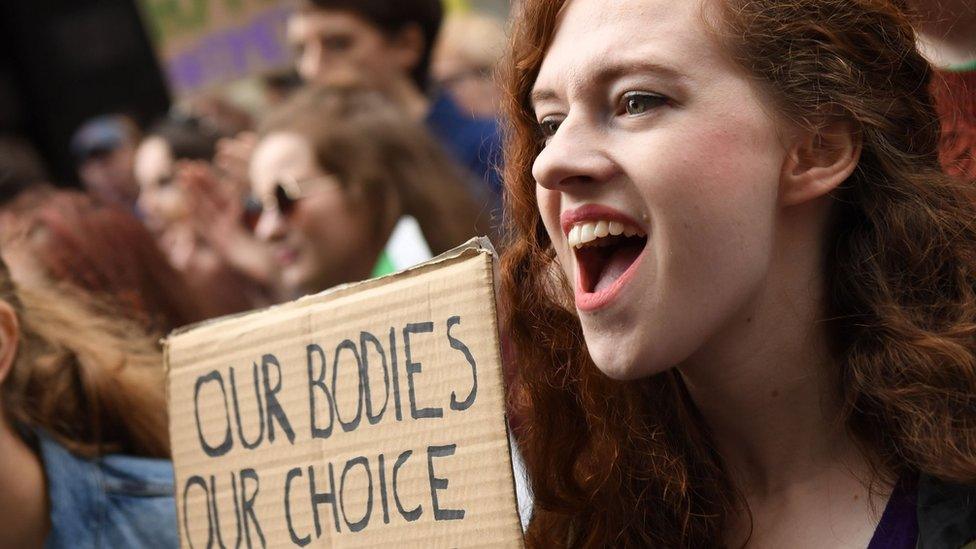Irish abortion referendum: New laws by end of the year - Irish PM
- Published
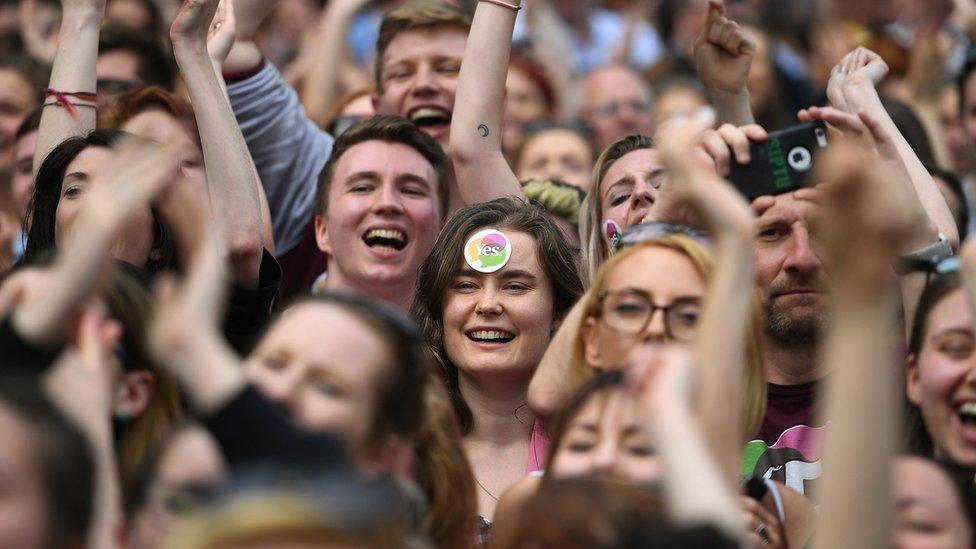
It was a highly-emotive campaign and the result was overwhelming
A new abortion law will be in place by the end of the year, Irish Prime Minister Leo Varadkar has said.
It follows a landslide vote in favour of repealing the Republic of Ireland's constitutional ban on abortion.
The proposed legislation will allow abortions during the first 12 weeks of pregnancy, and up to the 24th week in exceptional circumstances.
Irish Minister for Health Simon Harris will seek the cabinet's backing on Tuesday to draft the new legislation.
The result south of the border has shifted focus to Northern Ireland's similarly strict abortion laws, with UK Prime Minister Theresa May facing calls to act.
Northern Ireland will soon become the only part of the UK and Ireland with an almost blanket ban on terminations.
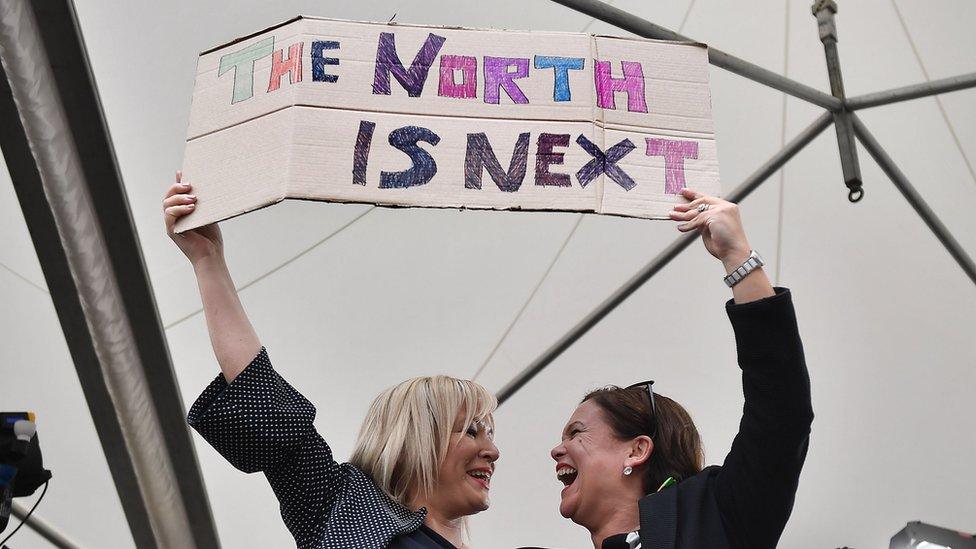
Sinn Féin's Michelle O'Neill and Mary Lou McDonald make their opinions known
But Mrs May is in a difficult situation because her administration depends on the support of 10 Democratic Unionist Party MPs - who strongly oppose any reform.
On Saturday, Penny Mordaunt - who is responsible for the women and equalities brief in government - said the referendum signalled a "historic and great day for Ireland" and a "hopeful one for Northern Ireland".
Nicky Morgan and three other former holders of the women and equalities role - Amber Rudd, Justine Greening and Maria Miller - all back Ms Mordaunt's support for liberalising the laws in Northern Ireland, the Sunday Times reported.
'Into the light'
Liberal Democrat leader Sir Vince Cable has said Mrs May should take advantage of the current lack of a devolved administration and push for reform from Westminster.
"The position in Northern Ireland is now highly anomalous and I think, probably, action will now have to be taken," he said.
At Dublin Castle on Saturday, Sinn Féin leader Mary Lou McDonald and her deputy Michelle O'Neill held up a sign saying "The north is next".
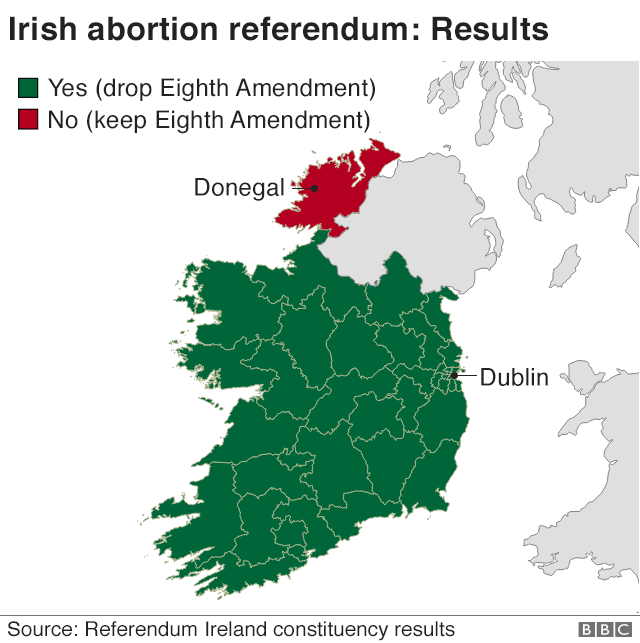
On Sunday, Ms O'Neill said the referendum result showed there was a "real appetite for change on the island of Ireland".
She also said the breakdown of government in Northern Ireland meant that alternative routes were needed to bring about reform.
"I would prefer we had the institutions up, I want to be a legislator to deliver for the people but in the absence of having institutions we need to find a way to deliver people's rights," she added.
She said the Irish abortion referendum result shows there is a "real appetite for change on the island of Ireland".
More than two thirds of voters backed the decision to change the law in every constituency in the Republic of Ireland, with the exception of Donegal.
The referendum delivered a conclusive consensus for reform among men and women, nearly all age groups and across most counties.
The final figures were 66.4% in favour of the change and 33.6% voting no.
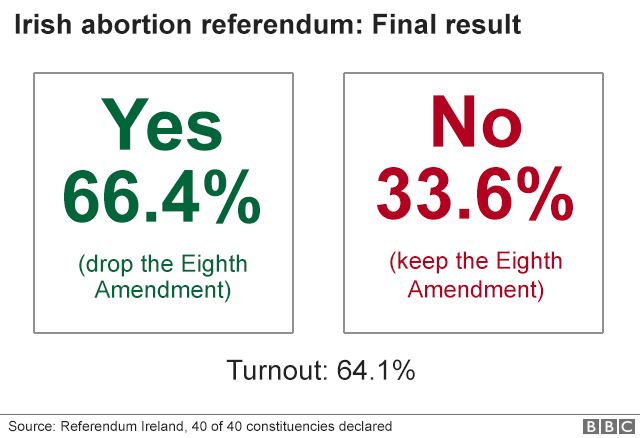
Mr Varadkar said Saturday would be remembered as the day Ireland "embraced our responsibilities as citizens and as a country".
"The day Ireland stepped out from under the last of our shadows and into the light," he added.
"The day we came of age as a country. The day we took our place among the nations of the world."
The Eighth Amendment was inserted into the Irish constitution in 1983 and it gave an equal right to life to the unborn and the mother.
Thousands of Irish women travelled to the UK every year for abortions, or sourced abortion pills.
Yes campaign supporters: "We made history"
Anti-abortion groups called the referendum result a ''tragedy of historic proportions'' with one saying it was already making plans to protest outside abortion clinics when they eventually open in Ireland.
- Published26 May 2018
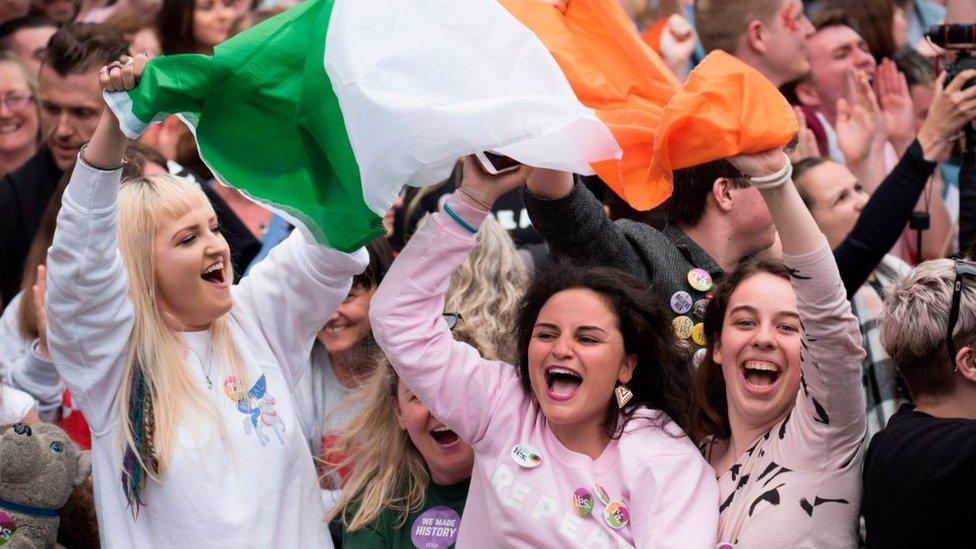
- Published24 May 2018
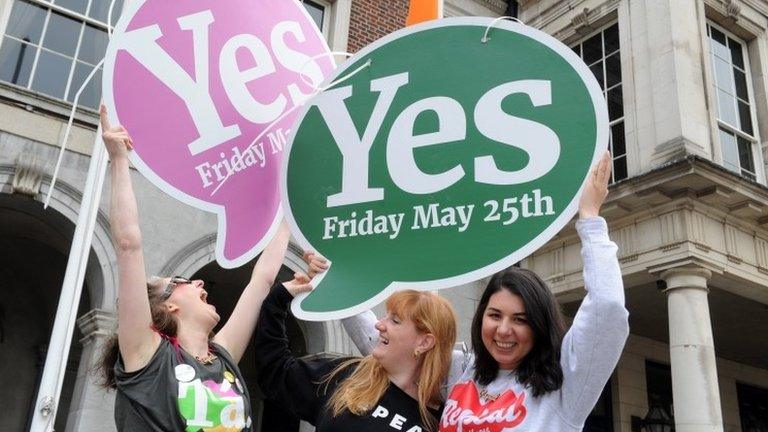
- Published26 May 2018
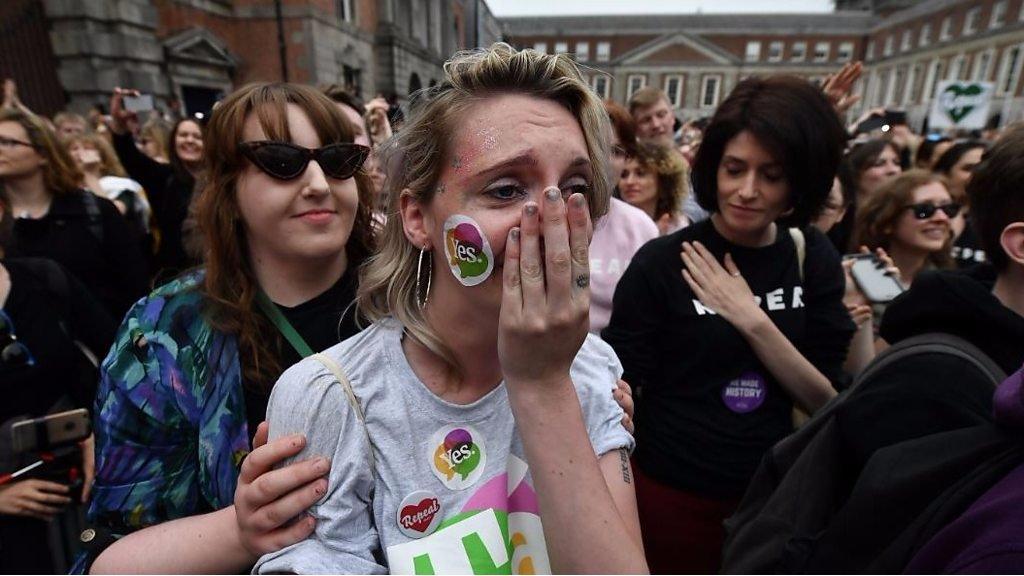
- Published26 May 2018
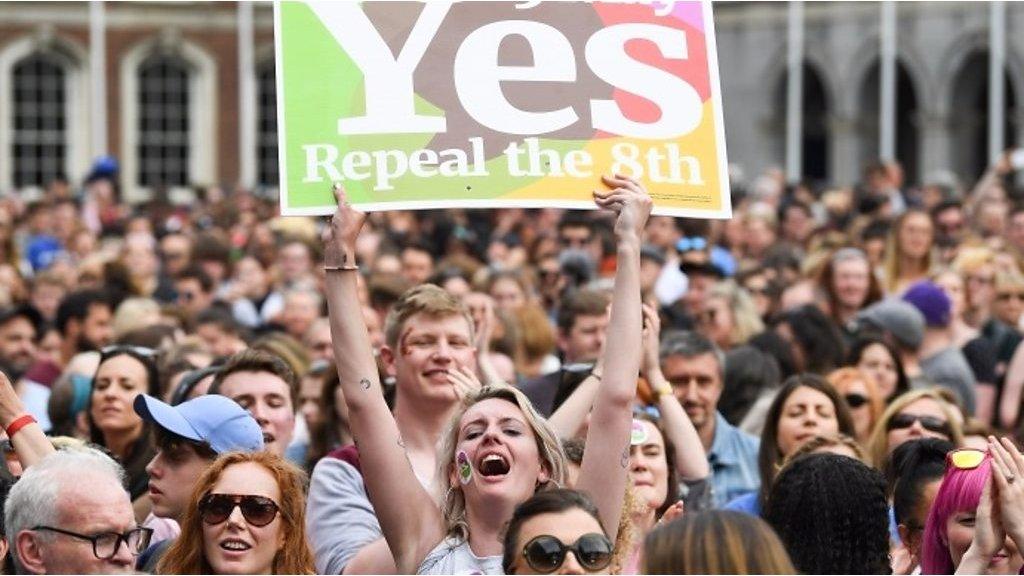
- Published26 May 2018
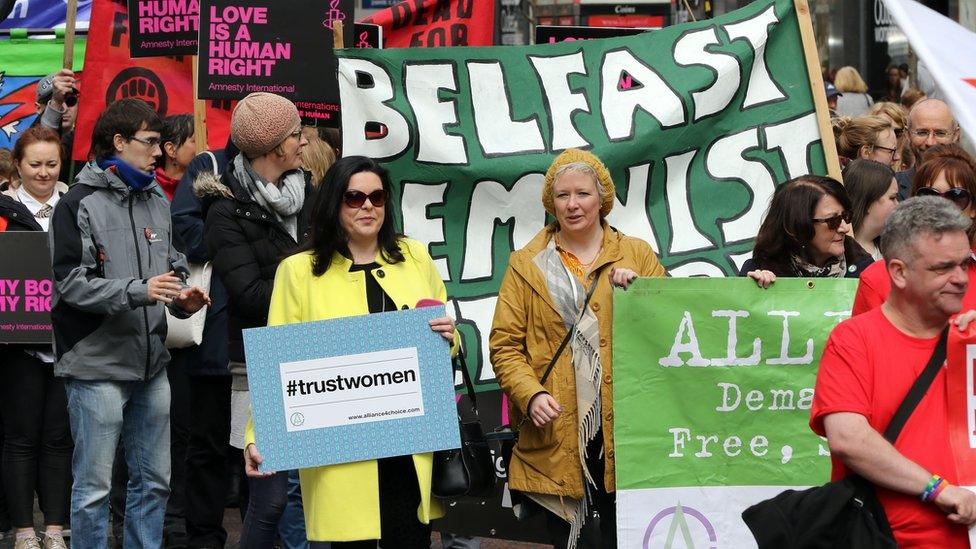
- Published26 May 2018
